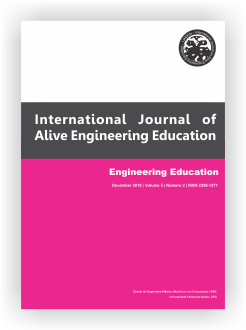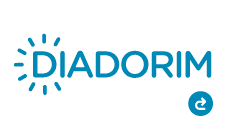Alternative Method of Internal Mobility for The Campus do Vale on UFRGS
DOI:
https://doi.org/10.5216/ijaeedu.v5i2.55124Abstract
The Center for Educational Engineering – NEED of the Federal University of Rio Grande do Sul’s School of Engineering has fostering the continuous improvement and innovation of engineering education through the development of innovative teaching practices as its goal. The project “Freshmen Reception – UFRGS Challenge” – 2017/1 was created as proposed. In this sense, NEED, drawing from concepts of active learning issued to the freshmen the challenge of how to make UFRGS more sustainable, making it possible to associate theoretical knowledge with practice. Through the proposed challenge, the Ciclo Camp project was developed by a group of freshmen from the SE’s various engineering courses, who suggested an alternate mean of internal transportation within the Valley campus. The project aims to provide a new form of transit for the student community, grounded on the concept of clean transportation. The project is about the rental of bicycles through a cellphone application to active students and staff members at UFRGS, for internal use within the Valley Campus. Stemming from this concept, the present article weaves an analysis of the acceptance of internal bicycle rental and sharing at UFRGS, besides proposing actions for the improvement of its most relevant aspects. For the evaluation and possible realization of the project, it was decided to elaborate and apply a survey to 155 currently enrolled students at UFRGS, in order to identify categories of applicability and economic applicability. The survey is structured in three major phases: a diagnosis performed through the questionnaire, validation of the data and analysis of the obtained results. As a result, it was observed that students reported being late to classes throughout the academic term due to the distance between the main locations of the Campus as well as claimed that the use of bicycles is a time-saving and facilitating method. As such, the students agree to make a symbolic payment for the maintenance of the bicycles, as well as to utilize the cellphone application. The need for the implementation of the Ciclo Camp project in the Valley Campus could be verified based on the diagnosis. After conducting the analysis of the results, an action plan was put in place, based on the Golden Circle process, a concept developed by leadership specialist Simon Sinek in order to create and develop the value of new ideas through a simple methodology. For the studies on the scope of the usage of bicycles as sustainable means of transportation, it is suggested through this article that the bicycles for the Ciclo Camp project be made in the institution’s metallurgical laboratories out of scrap metal coming from UFRGS itself.
Downloads
Published
Issue
Section
License
Copyright
The author is responsible for the following statements by submitting an article electronically in the International Journal of Alive Engineering Education (IJAEEdu):
a) States that the document in question was reviewed by an expert in English language and it is an original work and it holds the prerogative to grant the rights contained in this license. It also states that the document does not infringe, as far as it is possible to know the rights of any other person or entity.
b) If the document in question contains material which does not hold the copyright, the author states have obtained the copyright holder’s permission to grant the Universidade Federal de Goiás (UFG) the rights required by this license, and that such material whose rights are third is clearly identified and acknowledged within the text or content of the document.
c) States that the study was conducted in accordance with the ethical standards of all applicable institutional, local, national and international guidelines.
d) It also states that any person appointed as author or co-author of the document is aware of it and agrees to be so appointed.
Authorization Form
As responsible for the submission of the document, I authorize the School of Electrical, Mechanical and Computer Engineering of the Federal University of Goiás to provide the paper free of charge, through the Electronic System for Publishing Magazines UFG (SEER / UFG) or in printed form, without compensation of copyright, in accordance with Law No. 9610/98. Is allowed, reading, printing and / or download, as a promotion of the Brazilian scientific production. Any use of the work not authorized under this license or the copyright law is prohibited.



